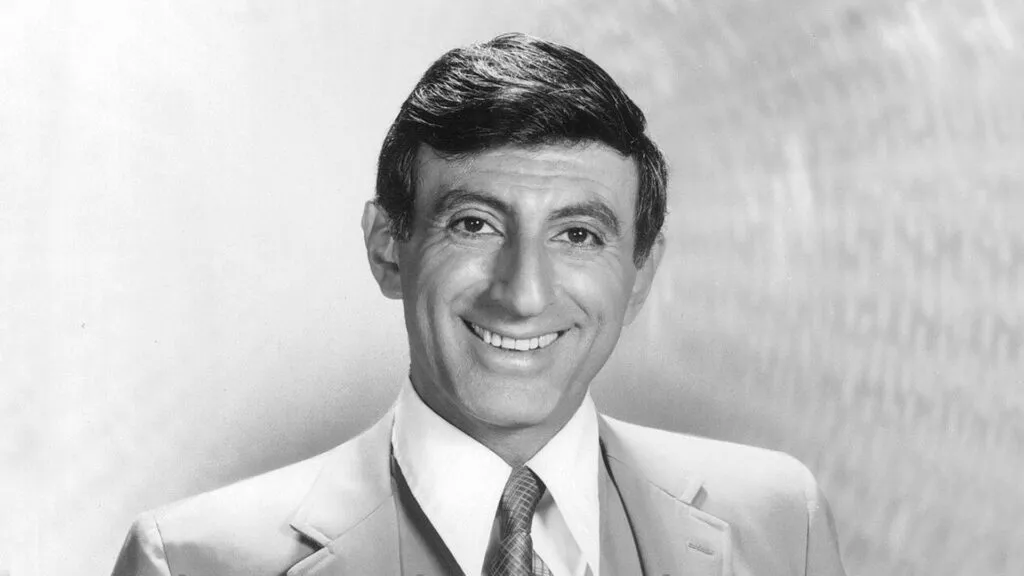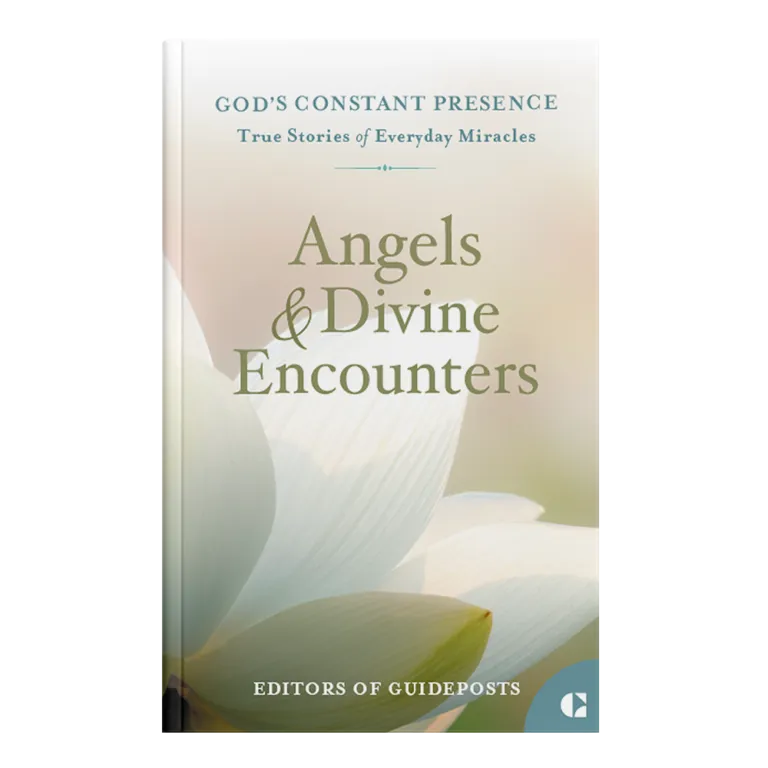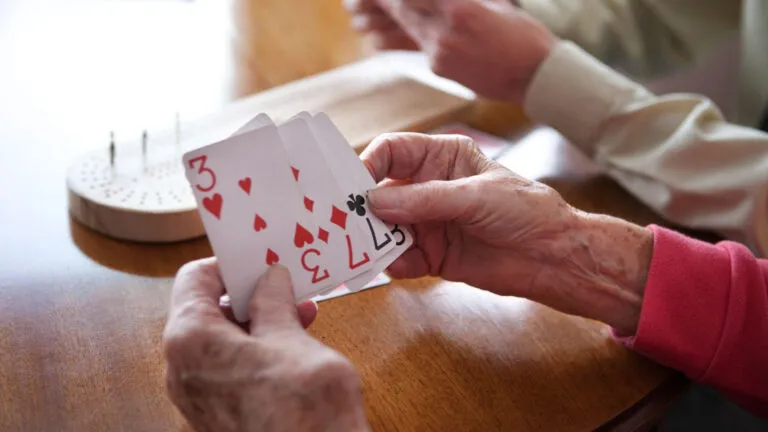Does God answer prayer?
Let me tell you what happened to me.
In November of 1962, I was one of the most hopeless guys on the West Coast. No, make that in the United States. Better, how about the whole world?
I mean, after all, I believed that God had called me to be an actor, to entertain–even help–people. And I’d worked hard at it. Even back in Toledo, where I was a poor kid with a big nose, I used humor to avoid getting beat up.
After graduating from Woodward High I heard about the Pasadena Playhouse in California that taught acting, and I followed Horace Greeley’s advice.
I got some movie parts, in The Blackboard Jungle and No Time for Sergeants. Then I was drafted. But when I returned from Japan and Korea, I was forgotten. By then my old friends Clint Eastwood, Robert Blake and Dennis Weaver had made it.
I still wore the little gold baptismal cross that bore my baby teeth marks, but all I felt like doing was biting nails.
About the only thing I had going for me was Joy, my fiancée. But I couldn’t even buy her an engagement ring. All I had was an ancient rusted Renault. At least I could drive Joy to her job as a bookkeeper/receptionist.
Every morning I would drop her off and then chug back to my dismal room that had the most silent telephone in California. I didn’t even mind when those pests trying to peddle Alaskan oil-well shares called, I was so happy to hear the telephone ring.
However, on that gray November morning I’d had it with being a nobody. After kissing Joy good-bye, and driving on, I happened to notice a little old white stucco church on a corner.
I stopped the car and sat there thinking about our Antiochian Orthodox Christian Church where I’d been an altar boy, and where my pals used to tease me with “Hey Jamie, you don’t need a snuffer to put out the candles; just nod your head.”
As I sat in the idling Renault, its engine wheezing, I knew I hadn’t been going to church very often. A feeling rose inside me. Why not now? I could light a candle and let God know how I felt.
By this time the engine had died. I pulled out the key, climbed the church steps and found myself in its dim interior. I was grateful no one was around.
Kneeling in a pew, I prayed: “Lord, You gave me the feeling that I should be an actor. I know it is honorable work, but I can’t even find work.”
I looked around at the paintings of the apostles and thought of the apostle my hero, Danny Thomas, had talked about when he visited us kids at Woodward High, his old school. He had been inspired by Jude, “Patron of the Hopeless,” an apostle of Jesus.
Well, Danny had made it in the movies and television all right, and he had built that wonderful hospital for children in Memphis.
I knew that Jude, who was “closer than a brother” to Jesus, had written part of the New Testament. After Jesus’ resurrection, Jude preached the Gospel throughout Mesopotamia, Libya and Persia before being martyred. They said he performed so many miracles in the name of Jesus that nothing was too hopeless for him.
Well, I sure was hopeless, I wished he could perform a miracle for me.
I lit a candle, fished all the coins from my pocket and dropped them into the little metal box. Then I went home to wait by the telephone.
Morning after morning I went to that church and prayed. But when I’d pick up Joy at the end of the day I could only shake my head.
Then I heard exciting news. A major studio would soon produce a film on the life of Jesus called The Greatest Story Ever Told. George Stevens, a famous director, would produce it.
I quickly phoned my agent. “Meyer, they’re putting on this movie about the Bible. Look, with my great Middle-Eastern face there’s got to be a part in it for me.”
He said he would check into it. I hung up the phone, heart thumping. Then I rushed over to the little stucco church.
A few days later my phone rang. It was not an oil-well salesman but Meyer, my agent. “George Stevens would like to see some film clips on you. Do you have anything with something dramatic in it?”
“Sure.” I had done a fairly serious role in a TV series called The Rebel. I phoned its actor/star. Nick Adams, and asked to borrow a copy.
“By all means.” he said. “Come by the house and pick it up.” I raced over, got the film and dropped it off at George Stevens Productions.
Then I went to the little church and lit a candle. “Look,” I prayed, “this movie is terrific. I’m just right for it. There’s got to be something for me in it and you gotta help me because I know you’re the saint of the hopeless.”
By this time I had lit so many candles that I felt like a full-time acolyte. When I returned home my agent called.
His voice was subdued. “Uh, Jamie, I just got word from George Stevens Productions. They looked at your film…and…”
“And?”
“They say they have nothing in the movie for you.”
I was shattered. I drove over to Stevens Productions to retrieve the film and return it to Nick Adams. On the way I stopped off at the church. I had some business with Saint Jude.
“Look,” I cried, “what am I supposed to do? Here I have been trying for so long. I was just right for that movie. I have all this experience and yet I can’t get a job!
“Give me a sign,” I almost shouted. “If I’m supposed to get out of acting, O.K. But what am I supposed to do? Sell automobiles? Be a dishwasher? I don’t care, as long as I get work.”
I didn’t even light a candle or slip some money into the poorbox. I was so angry I just turned and walked out.
I drove home feeling more hopeless than ever. When I put my key into the lock the phone was ringing.
It was my agent.
“Jamie,” he said in an awe-stricken voice, “I don’t know what happened, but the studio says they had a change of mind. You are in the movie. You are playing one of the apostles called Nathaniel Bartholomew. They want you to run over to their Culver City studio right now for a wardrobe fitting.”
I raced out to Culver City and went through the whole rigamarole, getting into makeup with beard and mustache, putting on the robes of Nathaniel Bartholomew and taking screen tests.
Then I stopped by the church and apologized to Saint Jude.
I called Joy and said we could start making wedding plans.
The next day the phone rang. It was my agent.
“Jamie, there’s been a change…”
“Oh no!” I cried, collapsing inside.
“Don’t worry,” he soothed, “nothing’s wrong. They haven’t changed your salary or guarantee. But they looked at your wardrobe tests and decided that you should play another part, that of the Apostle Thaddeus.”
“Oh,” I sighed, my heart beginning to beat again. “Wonderful. What do I care. Just as long as I have a job in the picture.”
I was so excited about everything working out that I called a good friend I’d been sharing my problems with. He was a religious kind of guy and knew about my stopping at the church regularly to pray.
“Mitch, guess what,” I said. “I got this 26-week guarantee in the movie The Greatest Story Ever Told. I’m playing the Apostle Thaddeus.”
“Who?” he asked.
“The Apostle Thaddeus.”
He was silent for a moment.
“Do you know Thaddeus’ full name?” he asked.
“No.”
“Well, it’s Jude Thaddeus. Saint Jude, the Apostle of the Hopeless, the one you’ve been telling me about all this time.”
I almost dropped the phone.
Fifteen minutes later I was back in the little church where I spent a long time on my knees. “Lord,” I sighed, “if You wanted to show me how dumb I am, how little faith I have, You have done it.”
Joy and I were married while we were making the movie. All 12 apostles in the film, along with Max Von Sydow who played Jesus Christ, were there with us at the ceremony.
Around the church were paintings of Jesus’ apostles. I looked up and spotted Saint Jude. I like to think that he was my best man.
For more inspiring stories, subscribe to Guideposts magazine.






